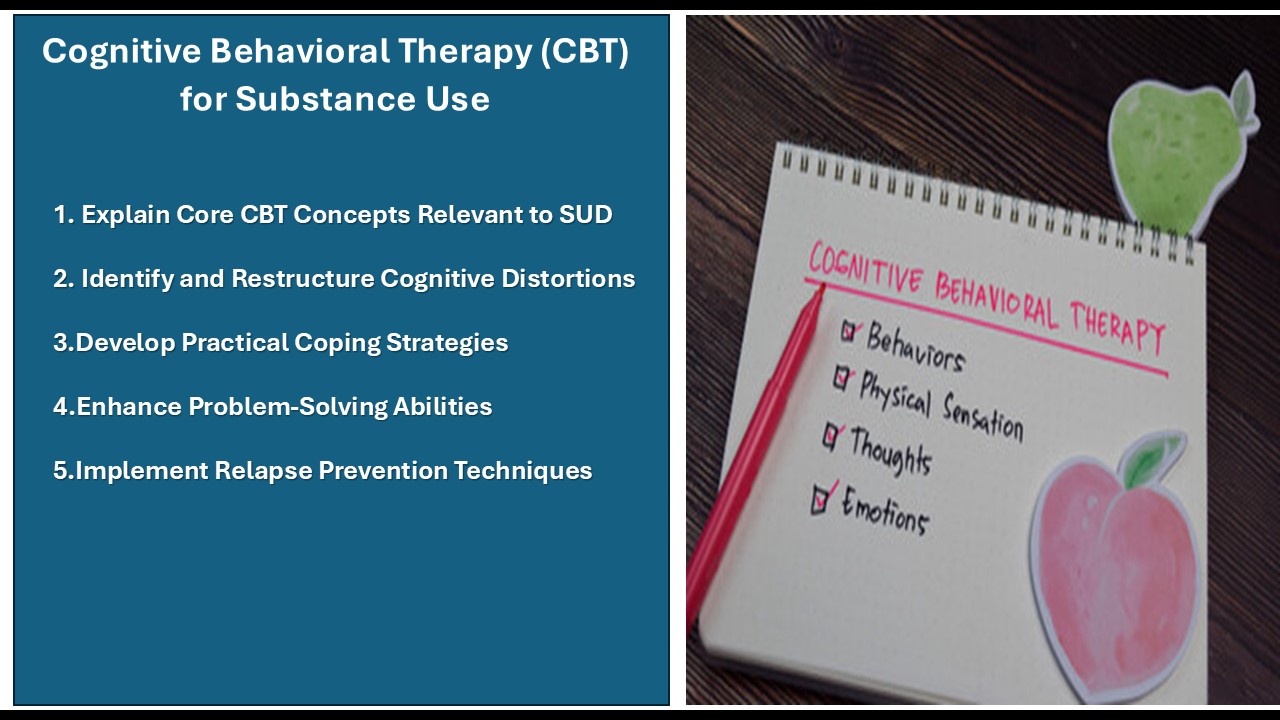A client-centered, evidence-based counseling approach designed to enhance motivation for change by addressing ambivalence and fostering self-efficacy.
Motivational Interviewing (MI) for Substance Use Disorders
Training Description:
Motivational Interviewing (MI) for Substance Use Disorders: This training covers the principles of Motivational
Interviewing—expressing empathy, developing discrepancy, rolling with resistance, and supporting self-efficacy—and
demonstrates how to enhance client motivation and commitment to change. Through roleplays and skill-building
activities, counselors learn to elicit clients own reasons for change and build stronger therapeutic
alliances. Mastering MI empowers counselors to reduce resistance, increase engagement, and support
positive treatment outcomes.
- Define and Explain the Core Principles of MI
- Enhance Client Engagement and Retention
- Navigate Resistance and Ambivalence
- Foster Self-Efficacy in Clients
- Integrate MI Into Broader Treatment Plans
Course Learning Objectives
This is a web-based self-paced training which provides 2 hours substance specific
board approved hours. The content for this project has been curated or developed by author Michael Daniels
MSW, LCAS, CCS, LCSW and other many amazing professionals who have donated their expertice and time to
ensure practitioners entering the addiction profession have access to quality trainings without barriers
of finance and access.
Receiving Credit: In order to receive credit for the training you must complete the interactive question within
the training. If you do not complete the embedded quizes, when you get to end of the training you will not
receive credit until you complete the embedded quiz questions. In Addition, you must complete the
50 item quiz at the end of the training and receive at least an 85% before receiving your certificate. You do have
the option of retaking the quiz until you reach the approved score. Once you submit your quiz, you will receive
your certificate with in 24 hours.
One of the core principles of MI, involving active listening, validation, and understanding of a client’s feelings without judgment.
A technique in MI that helps clients recognize the gap between their current behaviors and their desired goals, increasing motivation for change.
TA strategy used in MI to avoid direct confrontation and instead guide clients toward exploring their own reasons for change.
A key MI principle that emphasizes a client’s ability to make meaningful changes by highlighting their strengths and past successes.
Statements made by clients that indicate motivation to change, which MI practitioners encourage to reinforce commitment to change.
Client statements that express resistance or reasons for maintaining the status quo rather than making changes.
Questions that invite clients to explore their thoughts and feelings in depth rather than providing simple yes/no answers.
Positive statements that recognize a client’s strengths, efforts, and abilities to encourage confidence and motivation.
A technique in MI where the counselor repeats or paraphrases what a client says to ensure understanding and encourage further exploration.
A method used in MI to review key points from a conversation, reinforcing the client’s motivations and progress toward change.
The process of building rapport and trust with a client to establish a strong therapeutic alliance.
Drawing out a client’s own reasons for change rather than imposing external motivations.
The state of having mixed feelings or uncertainty about making a change, which MI seeks to resolve.
Techniques and approaches that align with MI principles, such as collaboration, acceptance, compassion, and evocation.

Below you will be able to access the training
- Course Introduction (10 minutes)
- Defining SBIRT & Its Purpose (15 minutes)
- Module 2: Core Components of SBIRT (20 minutes)
- Module 3: Rationale and Evidence Base for SBIRT (15 minutes)
- Step-by-Step SBIRT Implementation (30 minutes)
- Tailoring SBIRT for Diverse Populations (20 minutes)
- Course Wrap-Up & Final Assessment (10 minutes)
Additional Resources Related To This Training
Motivational Interviewing: A Dialogue with
the Practice's Co-founder William R. Miller
Articles Related To This Training
- Enhancing Motivation for Change in Substance Use Disorder Treatment
- Substance Abuse and Mental Health Services Administration
- Evaluation of the effect of motivational interviewing interventions on treatment
- Increasing Motivational Interviewing Capacity Among Outpatient Substance Use Disorder (SUD) Treatment Providers
- Motivational Interviewing in Primary-Care
Contact: Michael Daniels: Email: danielsm@ecu.edu: Phone: 252 7372117 for any technical questions
Editorial Disclaimer: Although all information contained in each training is based on validated research, any opinions expressed are those of the author's alone, and do not reflect
the opinions of affillate agencies. Although each training has an NCASPPB approved number, they
are not responsible for the content.